IEC Environmental Justice initiatives: Looking back, looking ahead on MLK Day
posted
on Monday, January 15, 2024
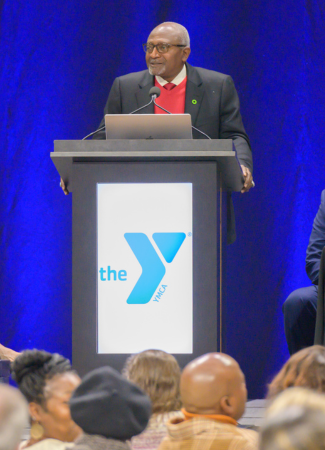 One year ago today, IEC was participating in the annual Dr. Martin Luther King Jr. Prayer Breakfast, hosted by the YMCA of Greater Des Moines. Traditionally recognizing and celebrating the work of Black, Indigenous, People of Color (BIPOC) activists and policymakers, the 2023 Prayer Breakfast featured keynote speaker Dr. Robert Bullard.
One year ago today, IEC was participating in the annual Dr. Martin Luther King Jr. Prayer Breakfast, hosted by the YMCA of Greater Des Moines. Traditionally recognizing and celebrating the work of Black, Indigenous, People of Color (BIPOC) activists and policymakers, the 2023 Prayer Breakfast featured keynote speaker Dr. Robert Bullard.
Dr. Bullard, a nationally known environmental leader and often referred to as the “father of environmental justice”, was a graduate of both Iowa State University and Drake University in his early career.
He reflected on his time in Iowa as he traced the history of environmental justice from the origins of the civil rights movement, including Dr. King, to the African-American leaders today who continue to organize against the disparate impacts of environmental pollution in BIPOC communities.
.png)
Dr. Bullard’s address was a call to action – and IEC was there to learn and listen. We were honored to be invited to host a summit following the breakfast - which we were delighted that Dr. Bullard stayed to participate in! - to facilitate conversations with area residents about environmental justice issues of importance to them.
One year later, our work reflects our commitment to environmental justice as a core component of our organization, and we acknowledge the work yet to be done. Environmental justice considerations are embedded through our work, such as in our 2024 legislative priorities, and we have developed and advanced new environmental justice project as well.
Take a look at some of our work since we gathered on one year ago, and explore where we're headed this year and beyond.
IEC selected to represent Iowa in the Heartland Environmental Justice Center
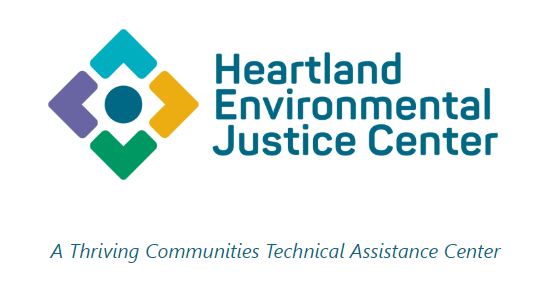 The Heartland Environmental Justice Center, serving as EPA's Region 7 Environmental Justice Thriving Communities Technical Assistance Center, is a coalition organization led by Wichita State University that covers Iowa, Nebraska, Kansas, and Missouri.
The Heartland Environmental Justice Center, serving as EPA's Region 7 Environmental Justice Thriving Communities Technical Assistance Center, is a coalition organization led by Wichita State University that covers Iowa, Nebraska, Kansas, and Missouri.
The Center helps communities develop their ability to participate in environmental justice and energy justice decision-making, find and apply for grants, and engage with the private sector to be part of energy and infrastructure project design and development.
As a primary representative for Iowa, our work hinges on targeted community engagement, applied research, tool development, and community assessments.
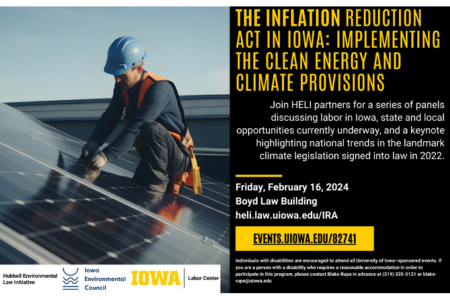 As part of this work, IEC’s Energy Policy Counsel Steve Guyer and Senior Policy Advocate Cody Smith will present at University of Iowa’s Hubbell Environmental Law Initiative (HELI) panel series The Inflation Reduction Act in Iowa: Implementing the Clean Energy and Climate Provisions on February 16 in Iowa City. Panels will focus on national trends in the landmark climate legislation, state and local opportunities currently underway, and labor and wages in Iowa. Learn more and register for the events on HELI’s website.
As part of this work, IEC’s Energy Policy Counsel Steve Guyer and Senior Policy Advocate Cody Smith will present at University of Iowa’s Hubbell Environmental Law Initiative (HELI) panel series The Inflation Reduction Act in Iowa: Implementing the Clean Energy and Climate Provisions on February 16 in Iowa City. Panels will focus on national trends in the landmark climate legislation, state and local opportunities currently underway, and labor and wages in Iowa. Learn more and register for the events on HELI’s website.
Environmental Justice in Iowa, an IEC Storymap
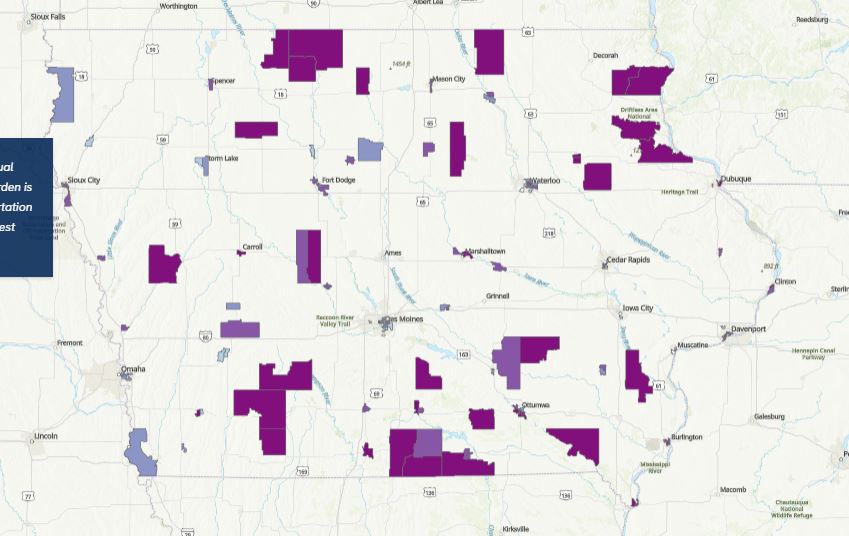 To identify Iowa communities with the greatest need, IEC staff utilized data from the Council on Environmental Quality’s Climate and Economic Justice Screening Tool (CEJST) to visualize areas of highest environmental burdens.
To identify Iowa communities with the greatest need, IEC staff utilized data from the Council on Environmental Quality’s Climate and Economic Justice Screening Tool (CEJST) to visualize areas of highest environmental burdens.
IEC considered environmental burdens such as energy burden (defined as when a household energy bill is more than 6% of a household's gross income), flood risk, elevated particulate matter, and agricultural loss. This, coupled with disadvantages through poverty or demographic indicators, were key considerations for selecting target communities.
Using the Storymap, we then identified five communities to focus environmental justice advocacy efforts over the next two years. These include Sioux City, Des Moines, Ottumwa, Cedar Rapids, and Waterloo. Each community exceeded multiple environmental justice indicators, prompting IEC staff to identify ways in which we can help address their unique conditions.
IEC is committed to leveraging data that outlines the real challenges Iowans face every day as we work strategically with impacted communities to serve Iowans with the greatest need. This work requires consistent engagement and outreach with our targeted communities, and we look forward to developing this work further.
View the Storymap to explore affected communities across Iowa.
Federal Funding & Justice 40
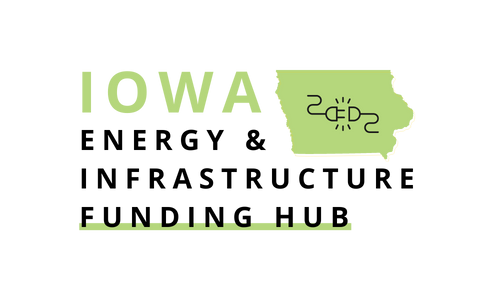 IEC's Iowa Energy & Infrastructure Funding Hub has resources for individuals, businesses, non-profits, and local governments seeking to navigate the billions of dollars in grants and rebates, especially proposals targeting historically disadvantaged communities. IEC staff are regularly updating the Hub to incorporate new funding opportunities.
IEC's Iowa Energy & Infrastructure Funding Hub has resources for individuals, businesses, non-profits, and local governments seeking to navigate the billions of dollars in grants and rebates, especially proposals targeting historically disadvantaged communities. IEC staff are regularly updating the Hub to incorporate new funding opportunities.
The Hub also features information on the Biden Administration’s Justice40 Initiative. The Initiative commits at least 40% of the benefits of clean energy and climate investments will go to historically disadvantaged communities.
With hundreds of billions of dollars in the Inflation Reduction Act and Bipartisan Infrastructure Law, this is an historic moment for groups like ours to work with partners and ensure all Iowans benefit from these investments. Learn more about the Justice40 Initiative and the Federal Funding Hub’s resources at iafederalfunding.org.
What's Ahead in 2024
In addition to the work to come from the initiatives and projects described above, we continue to advance other environmental justice efforts including the publication of a book with Drake Community Press, further assisting affected communities with additional EPA grant opportunities, and serving to uplift the voices of marginalized communities and individuals.
IEC wants to empower Iowans to raise questions regarding the past, present, and future of environmental justice in our state. We invite you to learn more about our environmental justice work from our blog and in our newsroom. As we collaborate to build our environmental justice program, we will continue to share what we’re learning, and we are excited to connect with you as we grow in this space.
- environmental justice
- federal funding
- inflation reduction act (ira)